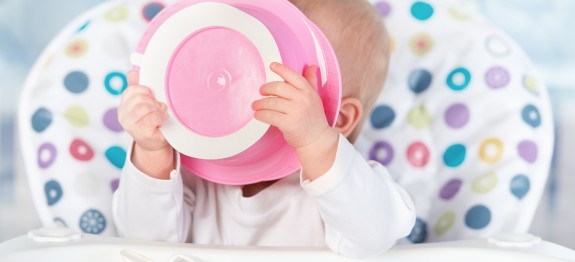Guest Post: Don’t Be Rude to Food
Written by: Kate Wengier
In our house we have a rule – be nice to food. Be polite to sweet potato, courteous to carrots and there’s no need to badmouth broccoli.
This rule comes in handy when starting the experimental food phase with a toddler. Kids at this age tend to jump to extremes and exclaim they ‘hate’ certain foods. You can respond by creating a really positive vibe around food, particularly healthy foods, during this critical phase of establishing habits.
The food politeness rule is also very important to older children, especially those who are role models to smaller siblings. We want our kids to keep trying and re-trying foods until they learn to like them.
If kids do feel the need to express themselves regarding a new food they’ve tried, encourage them to be descriptive instead, whether they like the food or not – is it crunchy or soft? Sweet or sour or salty? This works best with mum and dad setting the example. Talk to your kids about their five senses and describe the foods in a positive manner using these senses. Talk about the colour and smell of foods, does it make a crunching sound when you bite it and what does it feel like in your mouth.
When posing questions to your kids about a new food or a non-favourite food, you can ask the question in a way that encourages a positive response. “What is your favourite part of this meal?” or “wow, isn’t the red capsicum so crunchy today?” will usually result in more positive answers than if you ask “do you like it?”.
If the child eats a food they love, encourage him to sing it too the world! This apple is so sweet and crunchy! This vegetable lasagne is so colourful and delicious! And if you really don’t like it and can’t say anything nice about it? Then take some advice from Bambi’s Thumper and don’t say anything at all.
When teaching this rule, have fun with it. Practice with the kids. I get my kids at home and in cooking classes to take a bite of their favourite food on the plate and tell the whole table why they love it. Then we all take a bite of something that’s not our favourite and smile cheeky grins and all say nothing. The kids love it!
If your child still uses the words “yuck” or “hate” then nicely explain to them “ooops, remember to be nice to your food”. My older kids prefer the rhyme “don’t be rude to food”.
Creating a positive vocab around healthy food is also essential to engage kids at a level they understand and maintain a fun vibe in the kitchen and around the dinner table. Your family can even create its own words and phrases surrounding healthy food. For example you can refer to vegetables as colours – it’s about eating as many colours as you can. Meanwhile, fish might be ‘brain food’ or ‘smart food’, essential for that math’s test or assignment.
About the author of this article





























posted by Leanne on March 22, 2014
Fantastic post! So great to have such sound food wisdom out there in internet-land. I have a friend who calls pumpkin soup “sunshine soup”, and I’ve vowed to pinch that line one day.
posted by Mandy on March 26, 2014
Fantastic post. Love love love
posted by Hannah on May 21, 2014
This is fabulous! I absolutely plan on doing this.
posted by Annie Littlehales on October 19, 2015
LOVE THIS!!! What brilliant practical advice for encouraging our kids to really engage with their food! I absolutely love this as it will also encourage such great conversation, get them approaching their food with all their senses and am sure will bring about some great giggles. So so great! Thanks